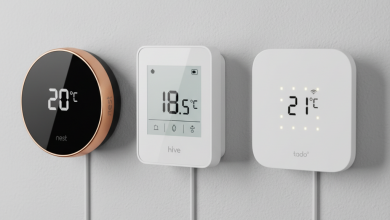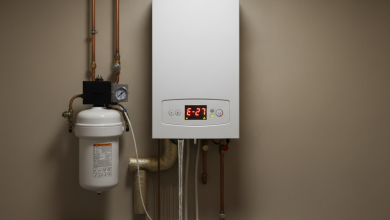The steam cleaning vs. chemical debate
When your carpets need a deep clean, the sheer number of cleaning methods can be confusing. The central dilemma for many homeowners comes down to two major approaches: steam cleaning vs. chemical cleaning carpets. While both methods can lift dirt and refresh your flooring, they operate on fundamentally different principles, affecting cost, drying time, and effectiveness.
This guide will help you understand the two core approaches used by professionals and answer the ultimate question: is steam cleaning better than chemical cleaning?
Method 1: The steam/water approach (hot water extraction)
The term “steam cleaning” is widely used, but professionals often refer to this process as hot water extraction (HWE). It is widely considered one of the most effective and deep-reaching methods available.
How it works
HWE involves injecting a mixture of hot water and a mild cleaning solution deep into the carpet fibres at high pressure. Almost immediately, a powerful vacuum extracts the dirty water and dissolved soil.
Hot water extraction: pros & cons
- Deep clean: Flushes out deep-seated dirt, allergens, and bacteria.
- Eco-friendly: Uses significantly fewer harsh chemicals than other methods, making it ideal for those seeking eco-friendly carpet cleaning services.
- Residue-free: Leaves behind minimal chemical residue, reducing the risk of “re-soiling“.
- Con: Long drying time (typically 4–12 hours, depending on ventilation).
- Con: Can over-wet (requires a skilled operator to avoid over-saturating the carpet, which can lead to mould).
Method 2: Chemical cleaning (encapsulation and dry cleaning)
Chemical methods rely less on water and more on chemistry to break down and lift dirt. These include encapsulation and often fall under the category of “dry cleaning” when comparing dry steam cleaning vs. hot water extraction.
How it works
- Encapsulation: A chemical polymer solution is applied to the carpet. As the chemical dries, it crystallises and encapsulates the dirt particles. This dried residue is then vacuumed up, leaving the carpet clean.
- Dry cleaning: A low-moisture chemical foam or compound is worked into the carpet using a rotating machine. The chemical attracts the dirt, and the residue is vacuumed away almost immediately.
Chemical cleaning: pros & cons
- Fast drying: Often ready to walk on in 1–2 hours, making it ideal for commercial spaces.
- Water safe: Minimal use of water is safe for delicate fabrics and water-sensitive carpets.
- Con: Surface Clean (generally does not clean as deeply as HWE; it mainly addresses the top fibres).
- Con: Chemical Residue (can leave behind chemical residue if not thoroughly vacuumed, potentially attracting new dirt).
Choosing your method: Carpet cleaning methods compared
When deciding which of the various carpet cleaning methods compared are right for your home, consider these factors:
- Level of Soiling: For heavily soiled, matted, or old carpets, hot water extraction (steam) is superior for deep sanitisation.
- Drying Time: If you need a room back in use immediately, a chemical (dry) cleaning method is preferred.
- Health Concerns: If you need a deep, sanitising clean and are concerned about allergens, HWE is typically better as it removes more allergens and leaves minimal chemicals behind.
In most residential scenarios, professional hot water extraction is the recommended standard for the deepest, most hygienic clean, ensuring effective removal of dirt, grease, and allergens.
Getting professional carpet cleaning prices UK
Choosing a professional with Rated People ensures not only a better result but also adherence to industry best practices. When researching professional carpet cleaning prices UK, keep in mind that cost usually depends on:
- The total square footage of the area.
- The type of carpet (wool is more expensive than synthetic).
- The level of soiling (heavy stains may incur extra charges).
- Your location (prices in London are generally higher).
If a quote seems significantly cheaper than others, verify their method—they may be using low-power, DIY-style machines rather than commercial-grade HWE equipment.
With Rated People, you have the power to get it done. Find a trusted, local tradesperson today.




